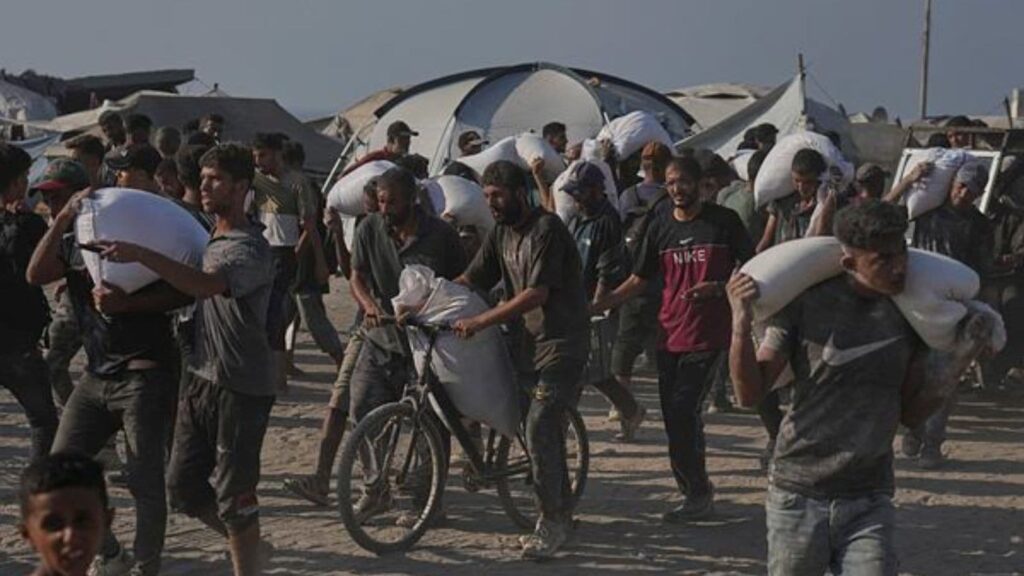970x125
Israel restarted its airdrops of humanitarian aid to Gaza on Saturday, according to a spokesperson for the Israeli military, days after over 100 aid agencies raised concern about growing hunger in the region.
970x125
In a statement, the Israeli Defense Forces (IDF) said it would also open “designated humanitarian corridors” to allow United Nations convoys to move safely and would carry out temporary “humanitarian pauses” in densely populated areas to support aid delivery.
“The airdrops will include seven pallets of aid containing flour, sugar and canned food to be provided by international organisations,” the statement said.
Palestinian sources confirmed that the aid had begun reaching northern Gaza.
More than 100 humanitarian organisations recently warned of “mass starvation” spreading in Gaza. The head of the World Health Organisation (WHO), Tedros Adhanom Ghebreyesus, called it a “man-made mass starvation”.
The Gaza Health Ministry said on Saturday that more than 125 people, including 85 children, have died due to malnutrition.
Israel has been criticised for blocking aid deliveries to Gaza during the war. It closed all crossings in early March and reopened them in May under new rules. Israeli officials maintain that they are allowing enough aid through but say it must be monitored to prevent misuse by armed groups.
Story continues below this ad
“There is no starvation in the Gaza Strip; this is a false campaign promoted by Hamas,” the Israeli military said in its statement to Reuters.
The military added, “Responsibility for food distribution to the population in Gaza lies with the UN and international aid organisations. Therefore, the UN and international organisations are expected to improve the effectiveness of aid distribution and to ensure that the aid does not reach Hamas.”
Israel also said about 700 trucks loaded with aid were stuck inside Gaza, blaming the United Nations for not distributing the supplies quickly.
Gaza, home to 2.2 million people, has faced repeated conflict since the war began last year. Aid groups continue to warn of worsening conditions, especially for children, as access to food, water and healthcare remains limited.
970x125

